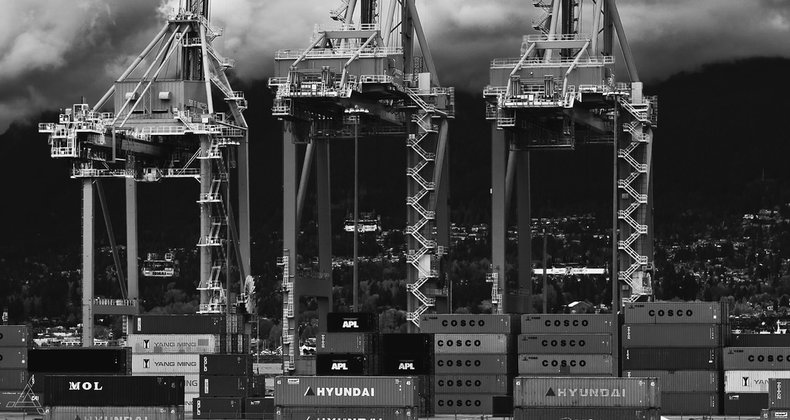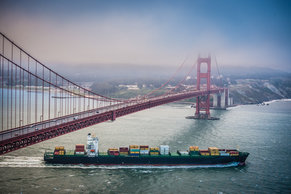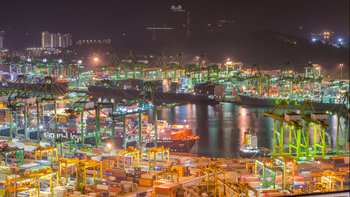
Natural Resources
The exchange of natural resources such as water, wood or iron ore. For example, a water rich nation that transports water to a more arid neighbor for a fee.Materials
The exchange of materials such as wood products or steel. This is critical to the global economy as some nations may lack certain raw materials.Components & Parts
Components and parts such as a bicycle tire or computer processor. It is common for a product to contain parts from dozens of nations. As such, trade is critical to the manufacturing of finished products. For example, if you want to start a Canadian bicycle company but most of the parts suppliers for bicycles are in China, Japan and Europe, you will depend on trade to start your business.Finished Goods
Products that are consumed by end customers. This is the most visible part of trade as most finished goods identify the nation where they were manufactured. For example, an aircraft assembled in the United States will be considered an American product even if it contains components and parts from Europe and Japan. Finished goods may be imported by wholesalers or retailers. This process is known as import/export.Consumer Services
Consumer services are products that mostly offer intangible value that has no physical presence. For example, an American streaming media service that is popular in Europe and Asia.Business Services
Business services such as process outsourcing or business software services. For example, a German firm might outsource its IT support processes to India and purchase American software services that are provided over the internet.Ecommerce
Traditionally, retail was a local thing. Ecommerce allows for global competition in retail. For example, a Canadian shopper might buy shoes from an American ecommerce firm.Value Added Resellers
Finished goods may be wrapped in addition product features or services and resold. For example, European software may be sold in Japan with local support and consulting services provided by a local third party.Foreign Direct Investment
Foreign direct investment is when a firm makes business investments that it controls in a foreign country. For example, a Japanese surfboard company that builds a factory in Vietnam.Free Trade vs Protectionism
Free trade is an agreement between nations, often multiple nations, that allows certain goods and services to flow over borders with few restrictions. Protectionism is a situation where a nation shields its industries from global competition by introducing trade barriers such as tariffs or import regulations.Advantages of International Trade
International trade has several advantages:Comparative AdvantageInternational trade allows each nation to invest in areas of comparative advantage and import things that it is not good at producing. For example, if you can produce higher quality software services than other nations but it costs you a great deal to grow wheat: it is better to invest in software development and import wheat.Economies of ScaleInternational trade allows things to be produced at great scale. This tends to be efficient as it reduces costs. For example, one nation might be able to produce 50 million air conditioning units at a low cost. This is typically more economically efficient than having every nation produce a few million air conditioning units whereby costs are likely to be higher for everyone.Consumer ChoiceGenerally speaking, consumers benefit from international trade as it can significantly reduce prices and increase the variety of goods available.Global StabilityNations that depend on each other for trade may be less likely to escalate conflicts. Historically, war was often viewed as an economic advantage as nations sought to take over the land and capital of their neighbors. A global interconnected economy means that conflict becomes increasingly disadvantageous as your supply chain may completely depend on trading partners.Disadvantages of International Trade
International trade has several potential disadvantages:CultureInternational trade is not a new thing. It is a persistent feature of history. However, modern capabilities such as global logistics, communication systems, jet travel and digital services that can instantly flow over borders have greatly increased global trade. This can have a destabilizing effect whereby people feel that culture is changing too rapidly. For example, a nation that historically produced its own television shows and magazines may quickly find such local content disappears as consumers shift to digital media services produced in America.ResilienceInternational trade results in economies of scale whereby things are produced in less places but in greater quantities. A community that is dependent on a foreign country for food, water, energy or critical supplies is less resilient to disasters, disruptions and conflicts.Social StabilityGlobal trade can result in a high rate of change to labor markets as an innovation in another country can suddenly disrupt a local industry. It also results in more cultural interaction that some individuals may find stressful and dislocating.| Overview: International Trade | ||
Type | ||
Definition | ||
Related Concepts | ||




































